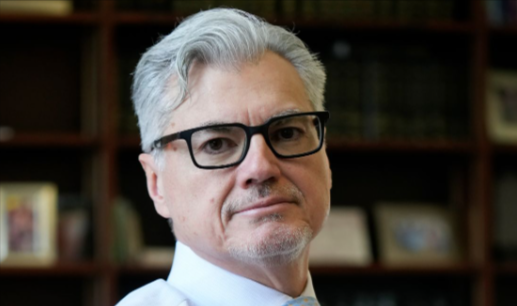Judge Merchan Reveals Shocking Development That Could Affect Trump Case

Judge Juan M. Merchan, who is presiding over the high-profile case involving former President Donald Trump, has disclosed new information that could significantly impact the case's outcome.
This follows Trump's conviction by a Manhattan jury for falsifying business records related to hush money payments to Stormy Daniels. Trump became the first U.S. president convicted of a felony, a crime carrying a maximum sentence of four years in prison.
“Dear Counsel: Today, the Court became aware of a comment that was posted on the Unified Court System’s public Facebook page and which I now bring to your attention,” Merchan wrote. “In the comment, the user, ‘Michael Anderson,’ states: ‘My cousin is a juror and says Trump is getting convicted. Thank you folks for all your hard work!!!!’”
Merchan informed the court of this Facebook comment, which had been posted a week earlier, on Friday, prompting an immediate review of its implications. Although the post responded to a standard UCS alert unrelated to the case, it specifically mentioned the Trump trial.
🚨 BREAKING: Judge Merchan sends letter to parties in NY Trump case notifying them that this comment was left on their Facebook page before the verdict:
— Benny Johnson (@bennyjohnson) June 7, 2024
“My cousin is a juror and says Trump is getting convicted & Thank you folks for all your hard work!!!!.” pic.twitter.com/u5SBuNQs6y
In this highly publicized case, Trump was found guilty on all 34 counts of first-degree business record falsification. The charges stemmed from an alleged scheme to prevent Stormy Daniels, an adult film actress, from disclosing an alleged affair before the 2016 election by paying her $130,000. Trump consistently maintained his innocence, describing the trial as a politically motivated farce.
The Facebook comment's disclosure, which suggested juror bias, could have serious ramifications for the Trump case. It casts doubt on the impartiality of the verdict. The comment implies that one juror believed in Trump's guilt before the official verdict, raising questions about the jury's impartiality. If proven that a juror had preconceived notions or was influenced by outside information, it could result in a mistrial or grounds for an appeal, with Trump's lawyers arguing that their client's right to a fair trial was compromised.
Any suspected juror misconduct might prompt an investigation into the jury selection and deliberation processes, potentially involving juror interviews to assess bias or outside influence. Such an inquiry could prolong the court case and delay sentencing. High-profile cases are under constant scrutiny, and any indication of misconduct can erode public trust in the justice system. Trump, as the likely Republican nominee, might use this to rally his supporters and bolster his claims of unfair treatment.
“It was a rigged trial, it was a disgrace,” Trump said outside the courtroom following the verdict. “The real verdict is going to be November 5th by the people.” He continued to assert his innocence, stating, “We didn’t do a thing wrong. I am a very innocent man. We have a country that is in big trouble.”
District Attorney Alvin Bragg brought numerous charges against Trump, focusing on Trump's alleged intent to hide the payment to Daniels, which his former attorney Michael Cohen claimed was arranged using a home equity line of credit. Cohen, the prosecution's primary witness, testified that Trump instructed him to “handle it” to avoid a pre-election scandal. Trump's legal team, however, vehemently denied that Cohen received any instructions regarding the payment.